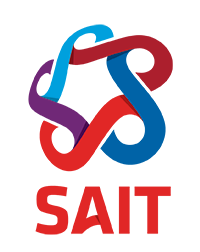Day 1 - Markdown, Kanban, and Project Organization
Introduction to Markdown
Markdown is a simple markup language used by developers around the world. It’s used to write README files, documentation, notes, and even some parts of websites (all of the lesson material in this course is written in markdown).
It is also used in many project boards to add text formatting. Some examples of project boards that use markdown are:
For this course we use github projects as your code will be hosted on github
Markdown basics
- Basic Syntax Guide
- Use markdown for formatting:
- headings
- body text (bold, italics, underline…)
- lists (ordered, unordered)
- hyperlinks
- images
- adding visual hierarchy to a document
Review and Walkthrough of Markdown Syntax
- Answer Questions
- Go over examples
Collaborative Markdown
- We can write documents together in real time with markdown using tools like Hackmd
- Hackmd is great because it can push directly to a github repo, it can be shared, edited, and read by many people
- Sign up on hackmd for some of our activities today
In class activity (10 minutes)
- Think of a job, game, sport, task, something that you have a lot of experience doing (you’ll be using this in a paired activity later)
- Create a new document and add the following (rely on the basic syntax guide linked above)
- An h1 heading
# Name of activity - A very short description of the activity (just write)
- An h2 heading
## Task List - A list of steps involved in your task or your task’s responsibilities (ordered with numbers or unordered with dashes)
- Include a link to a website that relates to your activity in some way
[text that is seen](https://pathtosite.org)
- An h1 heading
Break 15 Min
Welcome to My World Activity
- time: 20 minutes
- Teams: Work in pairs
- Goals:
- Practice markdown syntax
- Visualize jobs in a series of steps
Debrief
- Did you have a fairly different interpretation of your team members job breakdown?
Break
Kanban and Github Project Boards
Kanban boards are used to organize projects. They are used in Agile Project Management among others. You can simply use them to keep track of your own project without being in a formal team structure (which is how we will start using kanban boards).
Basics of Your Project Board
- Status States
- TODO
- Doing
- Done
- Blocked
- Issues
- Tasks, bugs, action items etc.
- Comprised of (at minimum):
- A title
- A description
- A comment section
- Organize based on status in your kanban board
- Labels
- Use labels to group types of tasks. Ie:
- bug
- priority levels
- enhancement
- documentation
- easyfix
- Use labels to group types of tasks. Ie:
Things to include in issues
- Context: describe the issue and necessary background information
- Definition of Done: the things that need to be accomplished for the issue to be considered resolved
Examples from Ashlyn’s Projects
Activity: Kanban Pizza Party
- Duration: 30* minutes
- Team Size: 4
- Goal: Build a project board in github that shows how to make a pizza
- Submit a link to your github project by the end of the day for a late start on tuesday
